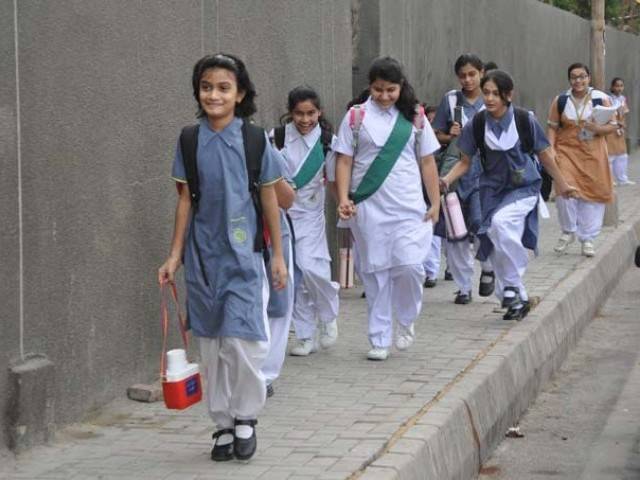
But cash-strapped parents have been unable to do much about it with the premier regulator hamstrung as its rules remain subject to litigation.
After exorbitant fee hikes in 2015, parents in Islamabad and other cities had formed alliances to fight against what they termed were monopolies being run by private schools who were making unjustified profits.
After fuming parents urged the government to intervene following fee hikes in September 2015, the Private Educational Institutions Regulatory Authority (Peira) notified new rules – regulating fee structures - on June 20, 2016.

The rules set caps for fees in the two educational systems of Matric and Cambridge. Peira set Rs9,350 as the cap for matriculation, Federal Arts and Federal Science classes, and Rs1,3777 for O and A’Level schools.
Peira also capped profit limits for schools at 20 per cent, and restricted annual fee hikes to 10 per cent.
However, the rules were challenged in the Islamabad High Court (IHC). The court ultimately ruled in favour of the schools and overrode the government’s notification, allowing schools to determine their fees.
Later, when it was appealed in the Supreme Court, the case was sent back to the IHC which heard the case daily and is expected to announce its verdict next month.
“All over world school fees are regulated, even in neighbouring India, but in Pakistan, schools have been given a free hand,” lamented Hamid Khan, a concerned parent who has been spearheading the parent’s movement.
He added that the lack of rules means schools had hiked their fees by 153 per cent this year.
“I hope the justice will prevail, and finally, there will be some checks on them [private educational institutions],” he added.
Once the regulator is empowered, he hoped to have the private education sector declared as a “not for profit”.

“This is a business now and the parents are being trapped to buy their ‘product’,” remarked another parent, adding that a simple calculation of the total strength of schools with a minimum fee for each class would show that the schools are making billions.
“These people are... shamelessly trying to multiply their mountains of money,” the parent wrote on a community page on Facebook for affected parents.
“With a very careful and conceited planning, the entire society has been hijacked. Parents are left with no other option. A situation has been created where if you do not give them whatever you have, you can just get lost,” the parent wrote.
“It means that if I have more money, someone can come and take it because I have a lot! Don’t you call that kind of action a robbery?”
Meanwhile, Peira officials are hopeful that the judgement from the IHC will be in their favour, and would allow them to regulate fee structures and limit the profits owners of private schools have been making.
An official of Peria suggested that some schools are making as much as 200 to 300 per cent profit.
“The regulator asked the schools that the fee limits set by the regulator can be adjusted and modified based on the cost and profit of the school systems and for that it hired international firms, but the schools refused to share any records and hide their profits,” lamented a Peira official, highlighting the overall problem which they were faced with.
Separately, Peira Chairman Hasanat Qureshi said that the authority was planning to conduct a survey in the capital to determine which private schools were violating the laws. Noting that 1,200 private schools were registered in the city, he promised strict action against non-registered schools found operating in the capital.
Published in The Express Tribune, October 24th, 2017.

















COMMENTS
Comments are moderated and generally will be posted if they are on-topic and not abusive.
For more information, please see our Comments FAQ